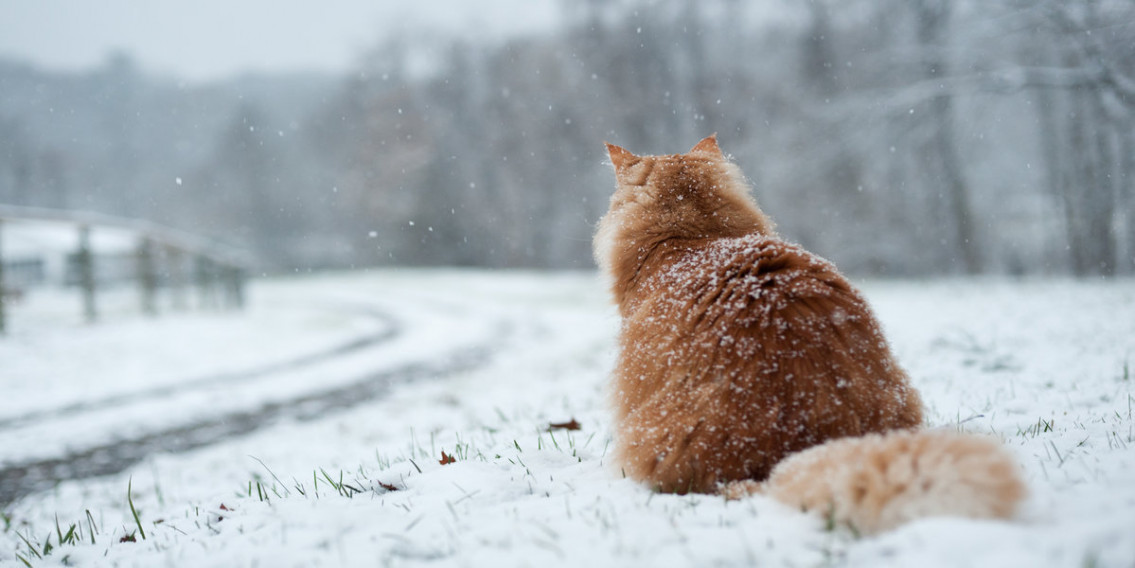We're here to help

Antifreeze poisoning in cats
Antifreeze is found in car radiators and some screen washes, but it is extremely toxic to cats.
Cats like drinking from ditches, puddles and ponds which means they’re prone to drinking water contaminated with antifreeze. Officially known as ethylene glycol, antifreeze is also found in some inks and snowglobes.
What are the symptoms of cat antifreeze poisoning?
The active ingredient of antifreeze, ethylene glycol, is rapidly absorbed into the body after drinking.
There are three stages of anti freeze poisoning. The length of time it takes for all of these symptoms to appear can vary depending on how much your pet has drunk. Anti freeze has effects similar to alcohol in the early stages. If treatment is to be effective it needs to be started no later than stage 2; prognosis worsens rapidly with time since exposure:
- Stage 1: 30 minutes to 12 hours after ingestion – The first sign you’ll see is likely to be wobbliness or falling over as if drunk. They may become sleepy. The back and kidney area can also become painful, there may be vomiting and your pet may be thirsty. They may also urinate frequently.
- Stage 2: between 12 and 24 hours after ingestion – your pet may appear to recover from the immediate symptoms, only to worsen again as the ethylene glycol works its way through his body.
- Stage 3: 24 – 36+ hours – Severe acute kidney injury occurs. Symptoms of this include severe depression, lack of appetite, vomiting, diarrhoea, drooling, halitosis, seizures and collapse
In one report involving 25 cases, 96% of those affected died. The first sign you see may be that your cat is very quiet and still, there may be vomiting and wobbliness or falling over as if drunk. This may progress to having a fit, and kidney pain as the kidneys start to fail.
Why do cats like antifreeze?
Antifreeze is sweet, so cats like the taste. But a lethal dose is reported to be around 1 to 1.4 ml per kg of bodyweight. That means just one 5ml teaspoon could be enough to kill a cat.
How to protect your cat from antifreeze poisoning?
If you are using antifreeze or any product containing ethylene glycol please be very careful where you store it. And if you spill any, clear it up straight away. If you have an ornamental garden pond, please don’t add antifreeze in the winter time. It may keep your fountains running in a cold snap, but it could put your cat’s life at risk.
What should I do if my cat has drunk antifreeze?
If you do suspect your cat has drunk antifreeze then you should call your vet or, out of hours, your nearest Vets Now emergency clinic, straight away. It is a genuine medical emergency. If the cat is treated immediately after exposure it has a far greater chance of survival. Your cat will, however, need intensive treatment. Tragically, the survival rate is very low if the kidneys have been damaged and cats often have to be put to sleep.
Is there an alternative to antifreeze?
Antifreeze is one of the most life-threatening poisonings that vets see, but there is some hope as there is a safer alternative. Propylene glycol antifreeze is more expensive but safe for pets and other wildlife, so please, if you have a cat, consider using this instead.
How long do cats live after drinking antifreeze?
Prognosis depends on the amount consumed and how quickly treatment is administered. In a study of 213 cases with known outcomes – reported to the Veterinary Poisons Information Service (VPIS) – 197 proved fatal. Ethylene glycol is the fourth most common query the service receives on cat poisonings.
Is it a crime to poison a cat?
Under the Animal Welfare Act 2006, it is a criminal offence to poison a cat. The maximum penalty for anyone found guilty is up to six months in prison and/or a £20,000 fine.

